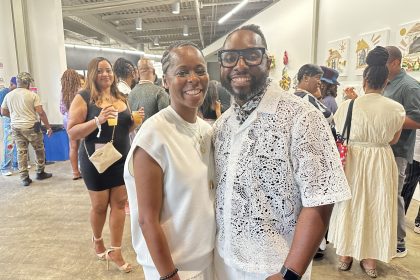On Dec. 11, the Shelby County Commission in Memphis, Tennessee, discussed an exciting proposal that could change the landscape of the city’s cultural offerings: a permanent hip-hop museum. This initiative aims to honor the deep-rooted history of hip-hop in Memphis, a city renowned for its contributions to soul music and now making significant strides in the hip-hop genre.
The vision behind the museum
Memphis recording artist Al Kapone, known for his track “Whoop That Trick” from the Hustle and Flow soundtrack, passionately advocates for the museum, stating to WREG, “Listen, we need that hip-hop museum in Memphis because the history runs deep.” His sentiments reflect a growing recognition of the city’s vibrant hip-hop scene, which has been influential for years.
Beverly Robertson, former president of the Greater Memphis Chamber and executive director of the Civil Rights Museum, presented the proposal to the city commissioners. She emphasized the importance of preserving and celebrating Memphis’s music culture, especially following the closure of the iconic Stax Records, which was pivotal in the soul music era.
Potential impact and economic benefits
The proposed hip-hop museum is projected to attract over 43,000 visitors annually. This influx of tourists could significantly benefit the local economy, with estimated yearly operating expenses of $1.8 million and anticipated revenue of $1.14 million. However, the project may require additional funding, estimated at over $700,000, to ensure its sustainability.
Robertson expressed optimism about the museum’s future, stating, “Once we get anchored, we will figure out how to generate the revenue to be able to sustain and grow the museum long-term.” This forward-thinking approach highlights the potential for the museum to become a cornerstone of Memphis’s cultural identity.
Community involvement and educational opportunities
During the commission meeting, concerns were raised about community involvement in the museum’s development. Commissioners inquired whether local artists, musicians and historians could contribute to the project. They also discussed the possibility of incorporating educational components, such as job-training programs in music for young adults and master classes in production.
These educational initiatives could provide invaluable opportunities for the youth in Memphis, fostering a new generation of musicians and industry professionals. The museum could also serve as a performance and wellness space, further enriching the community’s cultural landscape.
A new chapter for Memphis music
The proposal for a hip-hop museum in Memphis is more than just a cultural project; it represents a celebration of the city’s musical legacy and its ongoing evolution. As Al Kapone aptly put it, the Memphis music scene, particularly hip-hop, has been “dominating for a long time.” This museum could serve as a testament to that legacy, drawing tourists and locals alike to explore the rich history and vibrant future of hip-hop in Memphis.
As discussions continue, the community eagerly anticipates the potential of this museum to not only honor the past but also inspire future generations of artists and music lovers. The hip-hop museum could become a vital part of Memphis’s identity, showcasing the unique contributions of the city to the genre and ensuring that its history is preserved for years to come.















